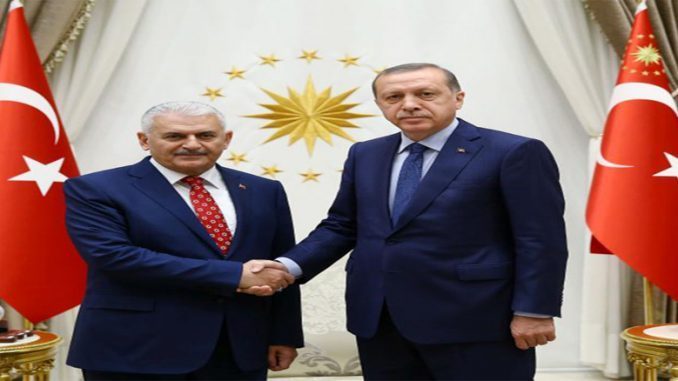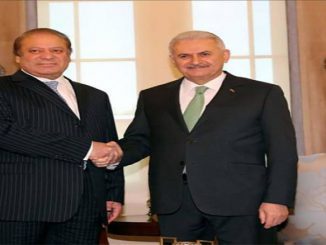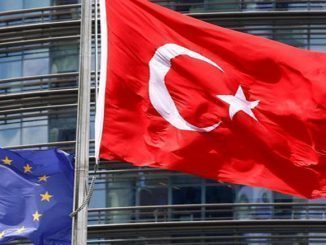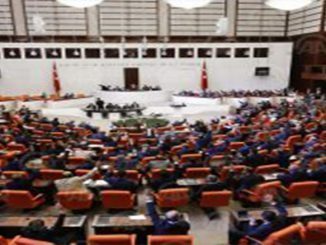
 BY: Yasin Aktay*
BY: Yasin Aktay*
First, in an environment in which political discussions are well-intentioned, all these criticisms and concerns are right, and we are trying to talk with the assumption that this is the case. Where bad intentions are determining, parties do not really have much to tell each other anyway.
Fortunately, the political field in Turkey is expanding daily. This means that the likelihood of discussing matters having influence on the shaping of people’s views is increasing further. People are more reasonably approaching issues by truly evaluating matters that are in their favor or against their interests.
Although worthless examples sometimes do ruin the atmosphere, we can say that there is improvement in Turkey in this sense and the political negotiation platform is becoming increasingly stronger. Even though current taboos continue to remain taboo for some and they express the desire to close off areas of discussion, when we look back, we see that numerous, ingrained problems that once were unable to be discussed, let alone even considered as a suggestion, have already been solved.
The headscarf ban, for which Turkey’s existence was once almost devoted, is presently an absurd matter people remember with a bittersweet laugh.
The matters that gave rise to the Kurdish question in the past are currently issues that have been “overcome”. In terms of the political level Turkey has reached today, the Kurdish question is down to the level of “the psychological issue of those who are at the loose ends, as the matters have been solved.” Otherwise, the Kurdish question is a matter that has been overcome and solved both for the community and the state.
The issue of Turkey’s system of governance was also one of these untouchable issues, and this also is on its way to being solved through reaching a minimum agreement in Turkey. The sole relation of this system to Erdoğan’s persona today is that he was the one who succeeded in bringing the subject to the country’s agenda as a solution. Otherwise, the claim that the presidential system is going to provide greater power to Erdoğan, that it is going to ensure the unity of forces in his persona, is nothing other than the Republican People’s Party (CHP) babble consisting of its phobia of Erdoğan.
The truth is that if Erdoğan wanted more power, he would require nothing more than the continuation of the current state. Due to the existing parliamentary regime and the exceptional relationship Erdoğan already has with his party within this system, Erdoğan will not achieve any greater power with the presidential system.
There are those who call people to consider what the outcome may be in the case someone else replaces Erdoğan in the presidential system. They simply need to be reminded that in the past, Kenan Evren, Süleyman Demirel and Ahmet Necdet Sezer were president in the parliamentary system. The presidency of all three had become possible in the parliamentary regime. We witnessed together what they cost the country. Could any one of these three – probably excluding the first one who came to the presidency through a coup – go through a natural election campaign process and garner the absolute majority vote of the people and get to that position they occupied for seven years each?
In response to those who say that the presidential system is going to give the president uncontrolled power, when we look over the new regulations, there seems to be almost more lines drawn for the president. The president is able to issue executive orders in relation to administrative matters, but what a president cannot do is mentioned more. A president, for example:
1. • Cannot issue executive orders regarding fundamental rights, personal rights and duties, and political rights and duties.
2. • Cannot issue executive orders regarding the matters prescribed in the Constitution to be regulated by law.
3. • Cannot issue executive orders regarding matters clearly regulated by law.
4. • In the case of contradiction between the executive order and laws, the provisions of law are applied.
5. • In the case Parliament issues orders on the same matter, the executive order becomes annulled.
6. • Executive orders are subject to review by Parliament and the Constitutional Court.
7. • Institutes with the status of a local legal entity cannot be established with executive orders.
8. • They are given the authority to dissolve Parliament, but when they dissolve Parliament, they also terminate their own position. The same applies for Parliament. When one side dissolves the other, they go to election together, i.e., to the people, the true owners of power.
9. • The president is no longer “irresponsible”, i.e., no longer “authorized but without responsibility”.
10. • The president is criminally liable. According to the existing Constitution, the president can be prosecuted only for treason with the votes of three-quarters of Parliament. Now, it is possible to file for prosecution upon a claim that a president committed any crime.
11. • A president who has been indicted cannot make a decision for snap elections.
12. • In the new system, the president is liable to Parliament and the people. In the current system, the processes that the president carries out alone are not subject to judicial review. In the new system, all of the president’s businesses and processes are opened to judicial review.
These are all statements that draw lines in relation to the president’s authorities and actually limit them.
Back when Özal and Demirel had also brought up the presidential system debate and wanted support, they were unable to receive it from the public. Not because the people did not believe the necessity and advantages of this system back then, but because they could not decide whether those who brought this to the agenda wanted it for themselves or for the people.
Today, Erdoğan receives great support and courage from the people to be able to bring this matter to the agenda again. The people believe and trust that Erdoğan is doing not for his himself, but for the benefit and future of the people, and hence, they are opening the way necessary for him to make this change.
Because the people know that the path for rule according to the people, for the people – in other words, the people’s own rule – is made possible instead of rule by some despite the people.
*Yasin Aktay is the vice chair of the ruling Justice and Development (AK Party) in Turkey.
(Published in Yeni Şafak Turkısh newspaper on Tuesday, Feb. 7, 2017)



